Philippe Manoury – Gesänge-Gedanken mit Friedrich Nietzsche
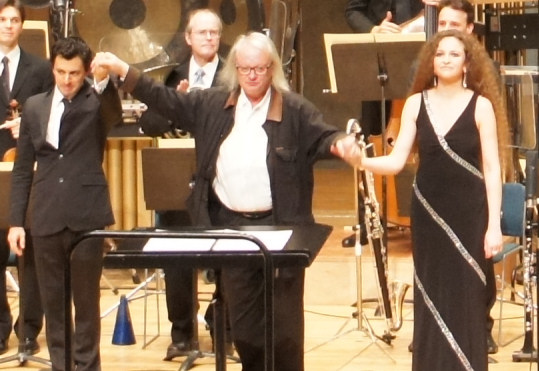
Continuer la lecture de Philippe Manoury – Gesänge-Gedanken mit Friedrich Nietzsche
Sélection de disques / médias pour découvrir la musique contemporaine
Philippe Manoury – Gesänge-Gedanken mit Friedrich Nietzsche

Continuer la lecture de Philippe Manoury – Gesänge-Gedanken mit Friedrich Nietzsche
Alban Berg – Suite lyrique – Lyric Suite

Continuer la lecture de Alban Berg – Suite lyrique – Lyric Suite
Olivier Greif – Requiem

Jonathan Harvey – Run before lightning
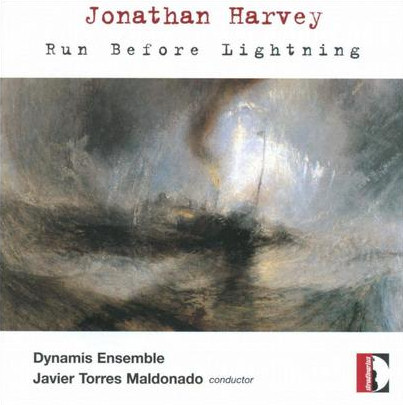
Continuer la lecture de Jonathan Harvey – Run before lightning
Salle Cortot – 30/3/2013
Serâ Tokay a donné une superbe soirée de musique avec sa Philharmonie de chambre de Lutèce à la salle Cortot.
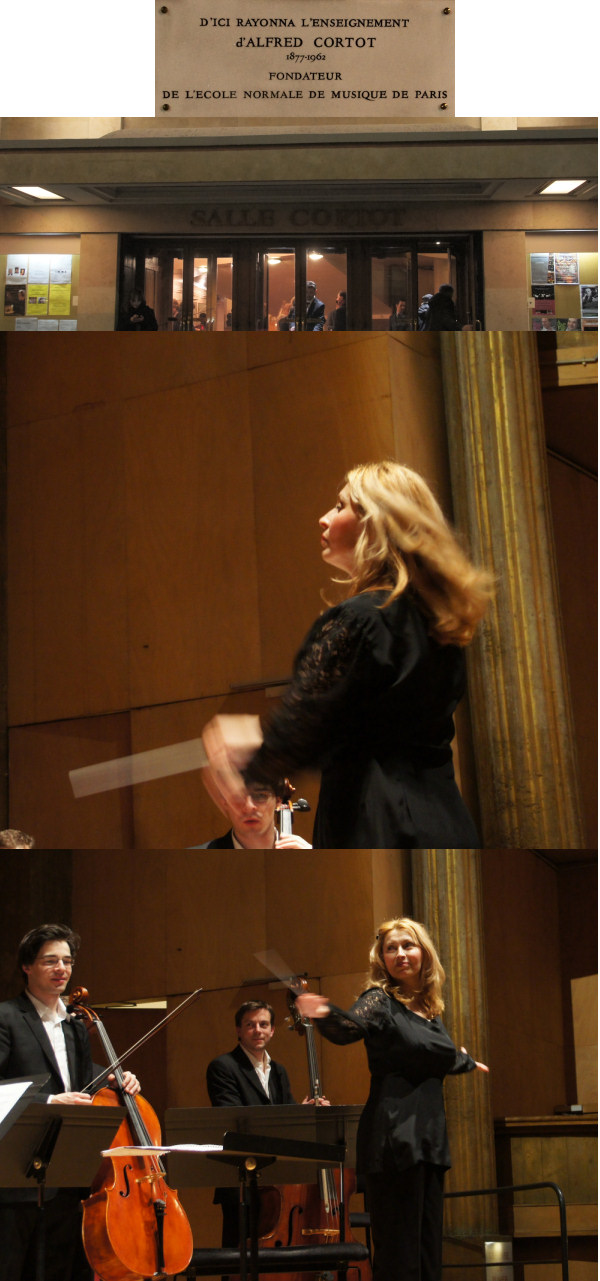
Continuer la lecture de Rencontre avec Serâ Tokay – A meeting with Serâ Tokay
Olivier Greif – Sonate de Requiem – Piano Trio
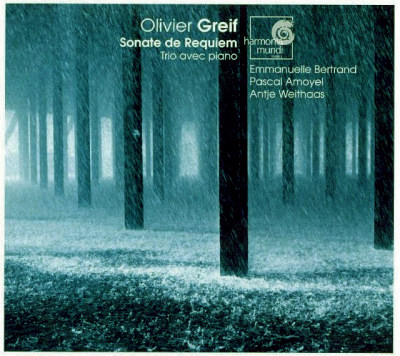
Continuer la lecture de Olivier Greif – Sonate de Requiem – Piano Trio
Arnold Schoenberg – Moïse & Aaron – Moses und Aron

| On continue notre panorama de l’oeuvre de Schoenberg avec cette fois-ci son seul opéra, inachevé, composé entre 1930 et 1932 en réaction à l’antisémitisme croissant en Allemagne. Il ne sera créé en version de concert qu’en 1954 à Hambourg sous la direction de Hans Rosbaud. | We pursue our panorama of the work of Schoenberg with this time his only opera, unfinished, composed between 1930 and 1932 in reaction to the growing anti-Semitism in Germany. It will be created in a concert version only in 1954 in Hamburg under the direction of Hans Rosbaud. |
|
|
|
| Mélomane de bonne volonté, si vous êtes un peu effrayé par le nom de Schoenberg, hormis La nuit, Pelléas et les Gürre Lieder, là, il y aurait de quoi fuir : un opéra (du Schoenberg chantant ?), sur un sujet biblique (Moïse tentant de convaincre Aaron de prêcher au peuple l’existence d’un Dieu invisible) et dodécaphonique qui plus est. C’est pourtant une œuvre passionnante et… dramatique.
Au débit, certaines longueurs, du Sprechgesang, le peuple symbolisé par un chœur avec six voix solistes, pas du meilleur effet. Au crédit : la musique de Schoenberg toujours aussi inventive, variée et prenante, de superbes scènes dramatiques et surtout son contrepoint savant . Citons Pierre Boulez : Un premier niveau est celui, religieux, du Dieu « irreprésentable » et « invisible ». Un deuxième est plus métaphysique : la vie a-t-elle un sens, implique-t-elle un but que l’on puisse comprendre ? Ce but est-il définissable ? Enfin, un troisième niveau est celui de la relation de l’art et du langage : peut-on imaginer un langage artistique qui ait aussi un pouvoir ? En l’employant, m’est-il possible de convaincre quelqu’un ? On notera que l’œuvre ne comprend pas moins de 3 orgies, mais à la Schoenberg, pas à la Richard Strauss… Pour mettre l’eau à la bouche, l’interlude dans cette version Boulez – 1995, qui paraît définitive (malgré Rosbaud – 1954, Scherchen – 1966, Gielen – 1974, Boulez – 1974, Kegel – 1976 et Solti – 1984). |
Music lover of goodwill, if you are a little frightened by the name of Schoenberg, except The Night, Pelléas and Gürre Lieder, everything is there to make you flee: an opera (singing Schoenberg?), on a biblical subject (Moses trying to convince Aaron to preach to the people the existence of the invisible God) and moreover a dodecaphonic piece. It is however an enthralling work and… dramatic.
To the debit, certain lengths, Sprechgesang, the people symbolized by a chorus with six soloists, not of the best effect. To the credit: the music of Schoenberg always so inventive, varied and fascinating, superb dramatic scenes and especially its erudite counterpoint. Let us quote Pierre Boulez: A first level is the religious one, of “unstageable” and “invisible” God “. A second is metaphysical: does the life have a direction, implies a goal that one can understand? Is this goal definable? Lastly, a third level is the relation of art and language: can one imagine an artistic language which has also a power? By employing it, is it possible for me to convince somebody? The work includes 3 orgies, but in a Schoenberg’s way, not in a Richard Strauss’s one… Here [left], the interlude in this Boulez recording- 1995, which appears definitive (in spite of Rosbaud – 1954, Scherchen – 1966, Gielen – 1974, Boulez – 1974, Kegel – 1976 and Solti – 1984). |
Zoltán Kodály – Sonate pour violoncelle seul – Cello sonata op. 8 – Emmanuelle Bertrand

|
La Sonate pour violoncelle op. 8 de Zoltán Kodály est devenue une pièce presque obligée du répertoire des violoncellistes ; on s’est amusé à recenser les versions plus ou moins disponibles…
En italique, celles que l’on a pu écouter. Il en manque (Piatigorsky…) et apparemment Rostropovitch ne l’a jamais enregistrée. Les versions Clein et Kliegel sont très honorables, Queyras (on se rappelle d’excellents concertos de Haydn et suites de Bach) est très élégant mais ça manque singulièrement de corps, Xavier Phillips n’a pas laissé grande impression. La seule version que l’on peut mettre en regard de celle d’E. Bertrand est celle du « prince des violoncellistes », Pierre Fournier, (ici dans un enregistrement public de 1959 (Praga) – à ce propos, on aimerait bien connaître celle du violoncelliste du quatuor Prazak, l’excellent Michael Kanka. Emmanuelle Bertrand prend son temps : 10 à 20% plus lente que Fournier dans chacun des 3 mouvements. On perd peut-être un peu de naturel dans les nombreuses figures rythmiques, mais on y gagne en intériorité : on se sent guider par elle dans un voyage intérieur, conforté par sa technique impeccable, son intonation infaillible, sa sonorité aussi aérienne que fruitée et la qualité exceptionnelle de la prise de son. Pour une fois, on est très content de toutes les distinctions qu’elle a pu recevoir récemment du milieu de la critique professionnelle. Une musicienne au sens fort du mot à la discographie déjà très fournie. |
The cello Sonata Op. 8 by Zoltán Kodály has become an almost obliged part of the repertory for cellists; we have listed –left– the versions more or less available… In italics, those we have listened to. Some surely are missing (Piatigorsky…) and apparently Rostropovitch never recorded it. The versions Clein and Kliegel are very honorable, Queyras (one remembers excellent concertos of Haydn and Bach Suites) is very elegant but presents a very light body, Xavier Philips did not leave great impression. The only version which one can place against E. Bertrand is from the “prince ofcellists”, Pierre Fournier, (here in a public recording of 1959 (Praga) – on this subject, we would like to listen to the version by the cellist of the Prazak quartet, the excellent Michael Kanka. Emmanuelle Bertrand takes her time: 10 to 20% slower than Fournier in each of the 3 movements. Perhaps we lose a little naturalness in the many rhythmic figures, but we gain in interiority: one feels to be guided in an interior voyage, consolidated by her impeccable technique, her infallible intonation, her splendid sonority and the exceptional quality of the sound recording. For once, we agree with all the distinctions she recently received from the (French) professional criticis. A true musician with an already extensive discography. |
||||||||||||||||||||||||||||||||||||||||||||||||||||||||||||
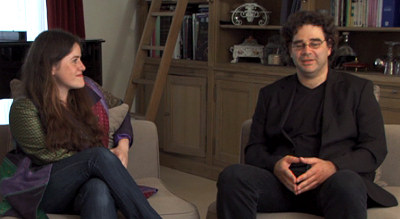 |
|||||||||||||||||||||||||||||||||||||||||||||||||||||||||||||
|
L’album, à côté de la suite n° 3 de Britten et d’une suite de Gaspar Cassado, propose Itinérance, de son compagnon Pascal Amoyel, œuvre très prenante, plus immémorialle que contemporaine, qui se termine par le chant – vocal – de la violoncelliste, comme pour exprimer l’indicible de la condition humaine. Je n’en dirai pas plus que l’excellent commentaire de l’album dû à Sylviane Falcinelli. L’album est complété par un DVD intéressant, notamment une séquence de travail sur la sonate de Kodaly, la complicité de son directeur artistique lors de l’enregistrement et l’intervention de Pascal Amoyel (photo). Cf. aussi « Le concert idéal« . Un maître-disque ! |
Besides Britten Suite n° 3 and a Suite by Gaspar Cassado, the album proposes Itinérance, a work by her companion Pascal Amoyel, a very fascinating work, more unmemorable than contemporary, which ends with the singing – vocal – of the violoncellist, like telling the inexpressible human condition. I will not tell more than the excellent comment of the album by Sylviane Falcinelli [fr]. The album is supplemented by an interesting DVD, in particular a sequence on the Kodaly sonata, the complicity with her artistic director during the recording and the intervention of Pascal Amoyel (photo). Magnifiscent… |
||||||||||||||||||||||||||||||||||||||||||||||||||||||||||||